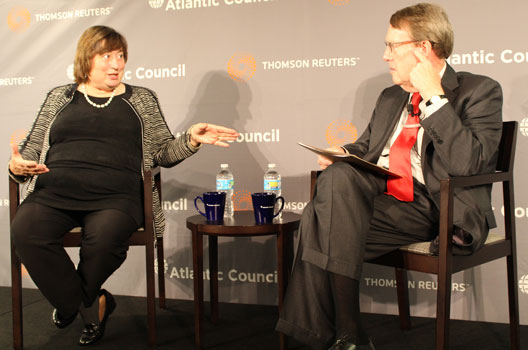 Developing countries are failing to meet fiscal transparency standards as established by the United States, according to a report released on July 28.
Developing countries are failing to meet fiscal transparency standards as established by the United States, according to a report released on July 28.
The US State Department’s Fiscal Transparency Report—released annually since 2012—details which countries meet the State Department’s minimum fiscal transparency requirements, which countries are making progress towards it, and which countries are making no significant progress.
In the 2016 report, sixty-four countries failed to meet the minimum standards. Of those, only eight showed significant progress.
The report reveals the highest number of countries that fail to meet the minimum standard and the lowest number making progress since 2012, when only thirty-four countries failed, and of those, thirty-two were making progress. The number of countries meeting the standard has steadily declined since 2012, as has the number of countries that have shown improvement.
In advance of the report’s release, a top State Department official reiterated commitment to fiscal transparency and detailed several new initiatives in that field.
“Transparency is…the cornerstone of sustainable economic growth, and creates the best possible condition for entrepreneurs to create new innovative industries,” said Catherine Novelli, the undersecretary for Economic Growth, Energy, and the Environment at the US State Department.
Novelli spoke at the Atlantic Council on July 20 in Washington at an event hosted by the Council’s Global Business and Economic Program and Thomson Reuters as a part of the Council’s Power of Transparency Speaker Series. Following her remarks, John Walcott, foreign policy and national security editor at Thomson Reuters, moderated a discussion.
The State Department’s minimum transparency standards reflect the completeness, reliability, and availability of budget documents and the transparency behind natural resource extraction and licensing. These standards are not static: each year, they may be updated and strengthened.
As a result, the report notes: “Some governments may fall short of these requirements, despite in some cases maintaining or even improving their overall level of fiscal transparency.”
Novelli described an initiative that helps governments set up online business registration portals: “In countries like Haiti, the process of starting a business is onerous and stifles development.”
Haiti ranked 188 out of 189 in ease of starting a business and 179 out of 189 in ease of registering property, according to the World Bank.
“The process [in Haiti] is so complicated that entrepreneurs need third-party attorneys and notaries to navigate it. Capital that could cover start-up costs get diverted to pay attorney’s fees,” said Novelli.
“[We are] helping governments set up one-stop shops with online platforms, to make it easier for entrepreneurs to start businesses,” she added.
The State Department also maintains a public database of worldwide commercial opportunities. Known as the Business Information Database System (BIDS), the database is designed “to help US businesses learn about international contract opportunities,” said Novelli.
BIDS—which was created in 2012—hosts over eight-hundred potential business investment opportunities across dozens of countries with an estimated total commercial value of over $300 billion.
To promote transparency in the extractive sector, the US is using the Extractive Industries Transparency Initiative (EITI) in partnership with industry and civil society to publish information on government management of these sectors. The publication of this information, noted Novelli, should help stimulate more efficient use of resources and stem corruption.
“It has really created an opportunity for citizens to see what is happening in their government and then have a voice,” she contended.
Despite these new initiatives, Novelli acknowledged that some countries are slipping behind.
“Many governments are still failing to make progress, and some, unfortunately, are moving backwards,” she said.
Nathaniel Rome is an intern with the Atlantic Council’s Global Business & Economics Program.
Image: From left: Catherine Novelli, undersecretary at the US Department of State and John Walcott, foreign affairs and national security editor with Reuters discuss the State Department’s efforts to promote growth through transparency. (Atlantic Council/Nathaniel Rome)
